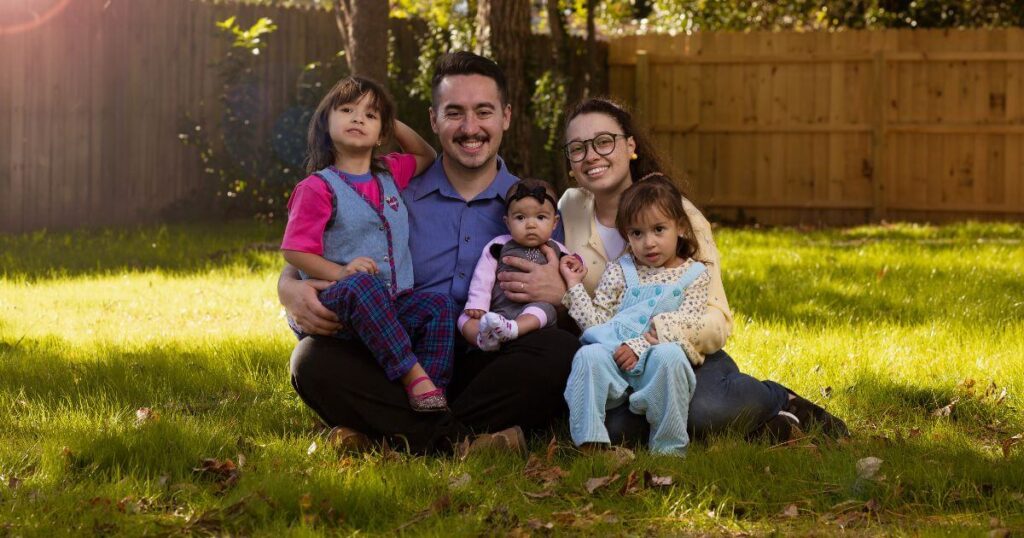Expecting parents frequently tell our Kenosha childcare facility that raising a third child will be just like managing a first or second child. In fact, some believe that it is easier at that point because they are accustomed to parenting and know what to expect. However, what they don’t know is that a third child brings a different dynamic to the family. Here are some tips on raising a third child:
Think of Each Child as a Gift
Each child is a unique and precious gift. They bring joy, laughter, and love into our lives, and they remind us of the beauty and wonder of the world around us. Every child is special in their own way, with their own talents, interests, and personalities. As much as you’re accustomed to your other two children, try not to compare them to each other. This will only lead to resentment and confusion among your children.
Each child brings new perspectives and ideas to the world. Your third child might present new challenges or topics that the other two children didn’t face. Be grateful for the gift of another child. This will help you not think of him or her as a burden (because we know moms and dads are doing their best even during burnout!).
Teach Them All to Work Together
Your first and second born should continue doing what they love, like going outside to play, without feeling like the youngest child is in their way. However, an alliance between them is an excellent idea.
One way to encourage teamwork is through cooperative games and activities. These activities can include puzzles, playing outside together, and group art projects. Children can learn to take turns, share ideas, and work together to achieve a common goal. Parents and caregivers can demonstrate active listening, compromise, and the importance of considering each other’s perspectives.
Additionally, setting clear rules and expectations for how children should interact with each other can also help. It’s important to also explain the reasons behind these rules and the benefits of working together.
Give Every Child Equal Attention
Giving every child equal attention when you have multiple children is a challenge. It is not always possible to provide your children with your full attention whenever they want it, and this is especially true for the two older ones. However, you can try your best and reward them when they are patient.
Scheduling one-on-one time with each child on a regular basis will ensure that each child is getting the attention they need. This can be done by setting aside specific times during the week when you will spend quality time with each child individually. For example, you can focus on the third baby, and when they are asleep, you go and spend time with their siblings. Rewarding the older children with an extra bedtime story will be well worth the wait.
Another way of ensuring that each child is getting the attention they need is by creating a positive and nurturing environment where children feel valued and supported. This can be done by giving them positive reinforcement when they do well and providing them with opportunities to express themselves.
Every child is unique, so you may need to adjust your approach for each child. It’s important to be consistent in your approach and to be patient. It will take time for children to adjust to new routines or ways of interacting with them.
Encourage Older Children to Help Out
Encouraging older children to help out with younger children can be a great way to teach responsibility and compassion.
One way to encourage older children to help with younger children is by asking them to help out with specific tasks. For example, older children can be in charge of reading to younger siblings, helping with feeding the baby, helping to clean up, or playing with them during playtime. Use a chore chart or other system to help your children learn responsibility and contribute to the household.
While it seems very basic for older children to help with younger siblings, there is actually a huge psychological advantage for each child. Research found that, beyond the influence of parents, older and younger siblings positively influence each other’s empathic concerns over time.
So trust your older children to take more responsibility! It will benefit everyone and also give you the opportunity to witness some sweet moments between your children.
Be Ready for Tough Decisions
Things will not always fall into place when you have a third baby. Sometimes, you’ll be doing something for the first and second born, and that’s when the baby will start to cry. You will not be able to make everyone happy at the same time, and this is where the tough decision-making comes in.
If the baby is safe, you can let him cry for another minute as you finish up with your older two, and then you can attend to them. You can also give the older two your attention, and then at night, you’ll snuggle up with the third born. If you always rush to the third child, then the other two will feel neglected. So, you need to make the hard decisions.
Take Time to Recharge
Finally, it’s important to remember to take care of yourself and your own needs so that you can be the best parent possible. This can be done by making time for yourself, getting enough sleep and exercise, and practicing self-care.
Furthermore, take advantage of the help and support from family and friends, especially if you have older children who can assist with the new baby. When your children reach a certain age, consider enrolling them in camps or daycare centers to give yourself a much-needed break. Here at Cornerstone Academy, we have a curriculum specifically designed around the age and understanding level of children. Learn more on our website and contact us with any questions or concerns!



